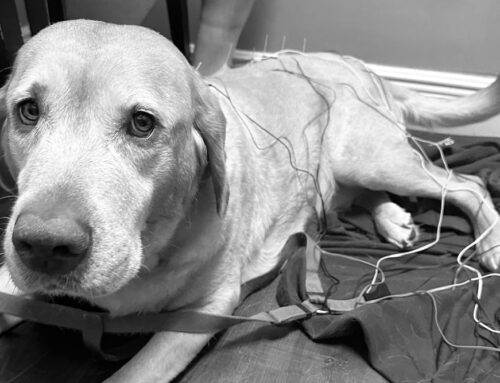As a devoted pet parent, walking into your veterinarian’s office can feel overwhelming. You want to make the most of your time with the vet, ensure your furry family member gets the best care possible, and leave feeling confident about your pet’s health. The key to a successful vet visit lies in asking the right questions.
Whether you’re bringing home a new puppy or kitten, managing a senior pet’s changing needs, or simply maintaining your pet’s wellness routine, having a prepared list of thoughtful questions will help you become a more informed and empowered pet owner.
Essential Health and Wellness Questions
Current Health Status
Start with the fundamentals that give you a clear picture of where your pet stands today:
“How would you assess my pet’s overall health today?” This opening question allows your veterinarian to provide a comprehensive overview and sets the foundation for deeper discussion about any concerns.
“Are there any changes in my pet’s body condition or weight that I should be aware of?” Weight management affects every aspect of your pet’s health, from joint comfort to organ function. Your vet can explain what constitutes a healthy weight range for your specific pet.
Nutrition and Diet Questions
Feeding Guidelines
Nutrition forms the cornerstone of good health, yet it’s one of the most confusing topics for many pet owners:
“What types of foods do you recommend?” Your vet may recommend certain brands (especially those that employ veterinary nutritionists), or they may share what they look for in a pet food company.
“How much should I be feeding my pet, and how often?” Portion control is crucial for maintaining optimal body weight. Ask for specific measurements rather than relying on general feeding guidelines on pet food packages.
“Are there any foods or treats I should avoid giving my pet?” Beyond the commonly known toxic foods, your vet can advise about ingredients that might not suit your individual pet’s digestive system or health status.
“Should I consider any supplements for my pet’s diet?” While quality commercial pet foods are formulated to be complete, certain life stages or health conditions may benefit from additional nutritional support.
Preventive Care and Vaccination Schedule Questions
Protecting Your Pet’s Future
Prevention truly is the best medicine, and your veterinarian is your partner in keeping your pet healthy for years to come:
“What vaccinations does my pet need, and when?” Vaccination schedules vary based on your pet’s age, lifestyle, and local disease risks. Understanding which vaccines are core necessities versus lifestyle-dependent helps you make informed decisions.
“How often should my pet receive preventive care exams?” Young, healthy pets typically need annual visits, while senior pets or those with chronic conditions may benefit from more frequent monitoring.
“What parasite prevention do you recommend for my pet?” Fleas, ticks, heartworms, and intestinal parasites pose ongoing threats. Your vet can recommend the most effective prevention strategy based on your geographic location and your pet’s exposure risk.
“Are there any breed-specific health concerns I should monitor?” Different breeds have predispositions to certain conditions. Early awareness allows for proactive monitoring and intervention.
Behavioral and Lifestyle Considerations
Understanding Your Pet’s Needs
Your pet’s mental and emotional well-being directly impacts their physical health:
“Are there any behavioral changes that might indicate health issues?” Subtle shifts in behavior often provide early clues about developing health problems. Your vet can help you distinguish between normal aging changes and concerning symptoms.
“How much exercise does my pet need for optimal health?” Activity requirements vary dramatically between species, breeds, ages, and individual pets. The right exercise routine supports both physical fitness and mental stimulation.
“What environmental enrichment would benefit my pet?” Mental stimulation through appropriate toys, activities, and environmental setup contributes significantly to your pet’s quality of life.
Age-Specific Health Questions
Puppy and Kitten Care
“What should I expect during my pet’s first year of development?” Understanding normal growth patterns, behavioral changes, and milestone markers helps you provide appropriate care during these crucial months.
“When should I consider spaying or neutering my pet?” Timing for these procedures has evolved with new research. Your vet can explain the benefits and optimal timing based on your pet’s breed and individual factors.
Senior Pet Care
“What age-related changes should I expect in my senior pet?” Knowing what’s normal versus concerning helps you provide comfort while recognizing when medical intervention might help.
“How can I help my aging pet maintain their quality of life?” Simple modifications to diet, exercise, and environment can significantly impact your senior pet’s comfort and happiness.
Emergency and Warning Signs
When to Seek Immediate Care
“What symptoms warrant an emergency visit versus waiting for a regular appointment?” Having clear guidelines helps you make confident decisions during stressful situations.
“What should I have in a pet first aid kit at home?” Being prepared for minor injuries or sudden illness can make a significant difference in outcomes.
“Who should I contact for after-hours emergencies?” Know your options before you need them, including emergency clinics and their contact information.
Cost and Treatment Options
Making Informed Financial Decisions
“What are the estimated costs for recommended treatments or procedures?” Understanding financial commitments upfront allows you to plan and make informed decisions about your pet’s care.
“Are there alternative treatment options we should consider?” Sometimes multiple approaches can achieve similar outcomes. Discussing options helps you choose what works best for your situation.
“What payment options or pet insurance recommendations do you have?” Many practitioners recommend insurance providers that work well with their services.
Building a Strong Veterinary Partnership
Communication and Follow-up
“What’s the best way to contact you if I have questions between visits?” Establishing clear communication channels reduces anxiety and ensures you can get guidance when needed.
“When should we schedule our next appointment?” Proactive scheduling based on your pet’s needs rather than arbitrary timelines optimizes their care.
“Are there any resources you recommend for pet care information?” Your vet can direct you to reliable sources of information that align with their treatment philosophy.
Preparing for Your Visit
To make the most of your veterinary appointment, consider these preparation tips:
Before the visit: Write down your questions, note any changes in your pet’s behavior or habits, and gather any relevant medical records if you’re visiting a new practice.
During the visit: Don’t hesitate to ask for clarification if you don’t understand something. Take notes or ask if you can record explanations for complex topics.
After the visit: Review any written instructions, ensure you understand medication dosing, and schedule follow-up appointments as recommended.
Creating a Lifetime of Health
Remember that your veterinarian wants to partner with you in providing the best possible care for your beloved companion. No question is too small when it comes to your pet’s well-being. Regular communication, preventive care, and your attentive observation of your pet’s daily habits create the foundation for a long, healthy, and happy life together.
By asking thoughtful questions and staying engaged in your pet’s healthcare journey, you’re giving them the greatest gift possible – a lifetime of feeling their best. Your dedication to understanding and advocating for your pet’s needs makes all the difference in their quality of life.
The bond between you and your pet is precious, and your veterinarian understands this deeply. Together, you form a team dedicated to ensuring your furry family member thrives throughout every stage of their life. Trust in this partnership, stay curious, and never hesitate to speak up for your pet’s health and happiness.
From nutrition and preventive care to behavioral concerns and emergency preparedness, our team in Westchase, FL, helps you advocate for your furry family member’s optimal health and well-being. Contact us to schedule your pet’s wellness appointment if you are in the Westchase, FL area, and put these valuable questions to work for your beloved companion’s care.







Leave A Comment